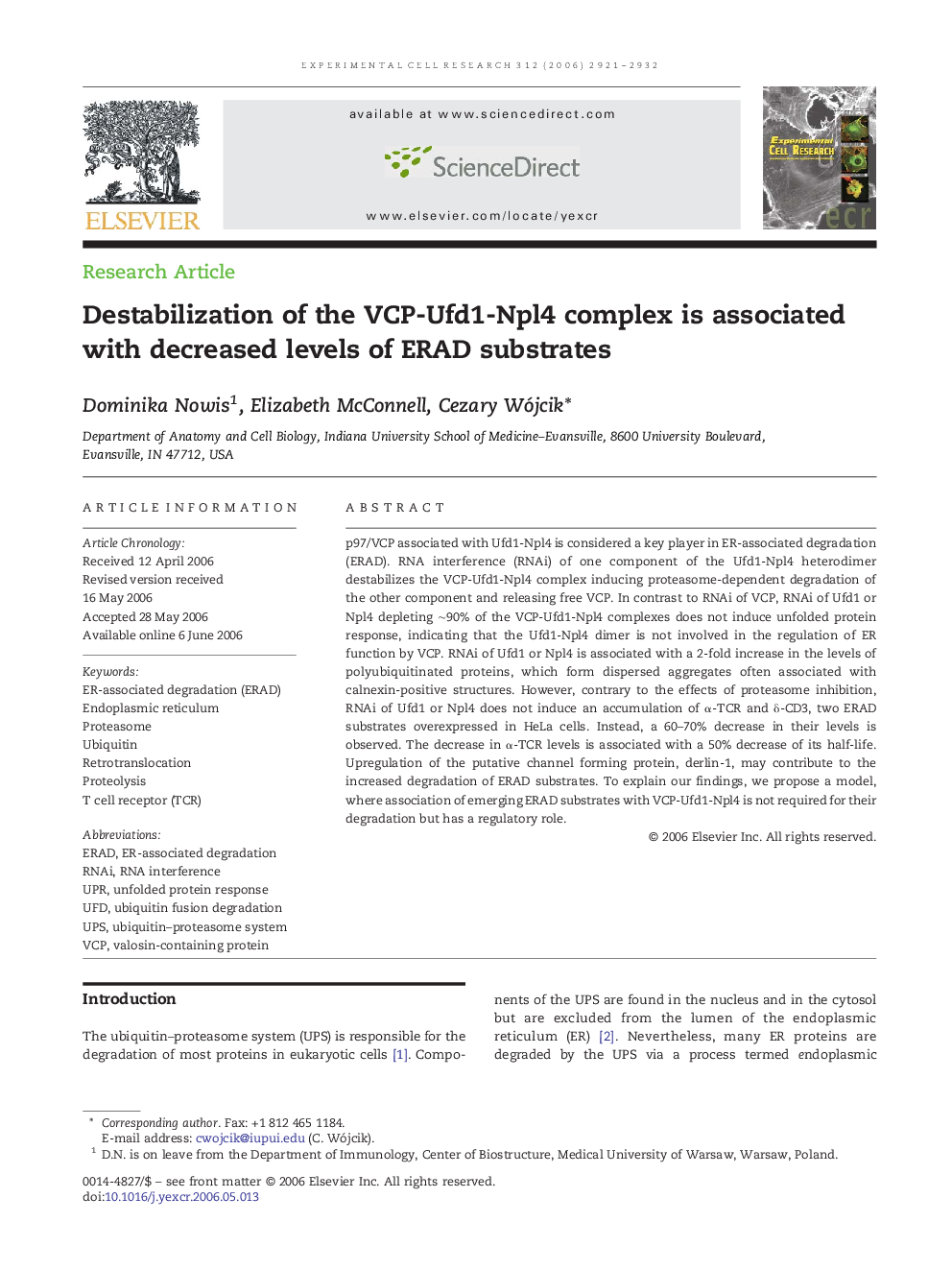| کد مقاله | کد نشریه | سال انتشار | مقاله انگلیسی | نسخه تمام متن |
|---|---|---|---|---|
| 2132887 | 1086725 | 2006 | 12 صفحه PDF | دانلود رایگان |

p97/VCP associated with Ufd1-Npl4 is considered a key player in ER-associated degradation (ERAD). RNA interference (RNAi) of one component of the Ufd1-Npl4 heterodimer destabilizes the VCP-Ufd1-Npl4 complex inducing proteasome-dependent degradation of the other component and releasing free VCP. In contrast to RNAi of VCP, RNAi of Ufd1 or Npl4 depleting ∼90% of the VCP-Ufd1-Npl4 complexes does not induce unfolded protein response, indicating that the Ufd1-Npl4 dimer is not involved in the regulation of ER function by VCP. RNAi of Ufd1 or Npl4 is associated with a 2-fold increase in the levels of polyubiquitinated proteins, which form dispersed aggregates often associated with calnexin-positive structures. However, contrary to the effects of proteasome inhibition, RNAi of Ufd1 or Npl4 does not induce an accumulation of α-TCR and δ-CD3, two ERAD substrates overexpressed in HeLa cells. Instead, a 60–70% decrease in their levels is observed. The decrease in α-TCR levels is associated with a 50% decrease of its half-life. Upregulation of the putative channel forming protein, derlin-1, may contribute to the increased degradation of ERAD substrates. To explain our findings, we propose a model, where association of emerging ERAD substrates with VCP-Ufd1-Npl4 is not required for their degradation but has a regulatory role.
Journal: Experimental Cell Research - Volume 312, Issue 15, 10 September 2006, Pages 2921–2932